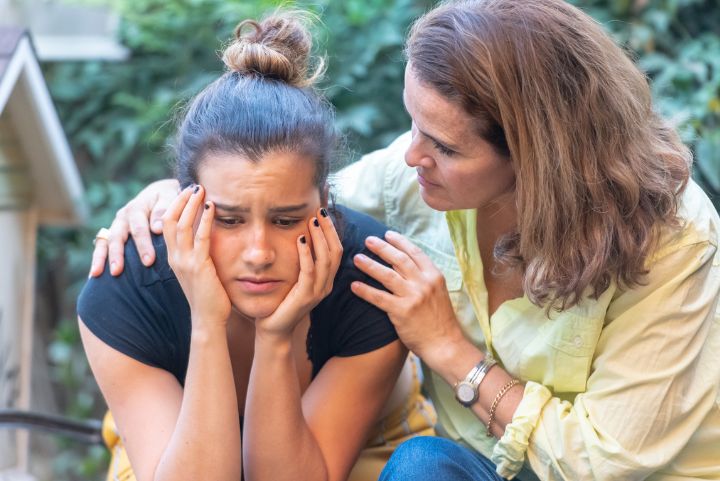Category: Life Skills
Teen Life Skills: An Essential Part of Transitioning Into Adulthood
There’s much more to life than reading, writing and arithmetic. In order to succeed in the world of adults, teens need to learn how to focus, listen to others, set goals, and so much more.
Teens who have mental illnesses may struggle to learn these lessons, as they may be starting their educational process so much later than their peers. Teens who had substance abuse issues may have arrested their skills development, and now, they must make up for lost time. It’s a difficult challenge, but life skills coaching could help. By linking up with a talented professional, teens might be able to develop the skills they’ll need when they leave adolescence behind for good.
Vital Skills
The specific abilities a person needs depend heavily on what that person does on a day-to-day basis. A person who works alone as a writer, for example, might need a very different set of skills when compared to someone who sells clothing in a busy shopping mall. There are, however, some attributes that experts feel are vital for adults to master. In a study of the issue, in the Indian Journal of Psychiatry, researchers suggest that vital life skills for teens include:
-
- Critical thinking
- Decision making
- Problem solving
- Clear communication
- Emotional coping
- Self-awareness
- Empathy
Many of these skills have to do with personal success. Teens who can solve problems, think critically, make decisions, and deal with their own emotions are likely to do well when presented with a challenge or a difficult problem. However, some of these skills revolve around a teen’s interactions with others. A sense of empathy, for example, would allow a teen to see a situation from another point of view and perhaps work well as part of a team. When all of these skills are put together, the person can work well alone and well with others. This is the sort of adult that companies might want to hire, and the sort of adult others might want to spend time with.
Adolescence is traditionally considered a vital time to learn these lessons, as the adolescent mind is mature enough to handle deeper lessons and complicated concepts. Unfortunately, the learning curve is steep for adolescents, as they’re expected to transition from school to higher learning institutions or work in just a few short years.
Missed Opportunities
Some teens are able to lean on their family members, modeling their life skills on the behaviors of the adults who surround them. There are times, however, when teens don’t have parents or family members who can help them to learn. When teens don’t have role models to lean on, they can find it much harder to pick up vital skills, and this problem might be widespread. A study of this issue, published in Young: Nordic Journal of Youth Research, found that parental responsiveness was closely associated with life skills development. Those teens who had very responsive, engaged parents had greater skills than those who had less responsive parents. When it comes to skills, parents matter and they must devote a significant amount of time to the work.
Teens might also find help if they participate in sports. Team sports require teens to think about the needs of others and the goals of a group, and this can boost empathy and outer directedness. Sports also require players to plan ahead and think about the future, even if the future is just the end of a match, and this can also help teens to develop important goal-based skills. The coaches themselves might also take the life skills of their players into account, according to a study in the journal Applied Sport Psychology. In this study, successful coaches said that teaching life skills was as important as winning, and they felt that players with good life skills were just more likely to win. As a result, teens who play team sports may be able to pick up important lessons, even if they can’t learn them at home.
Not all teens can play sports, however, and not all teens have home lives that are ideal. Some teens with mental illnesses are simply too upset to participate in sports on a regular basis, and they may not be able to listen to their parents, even if those parents want to help. Other teens who develop drug addictions aren’t physically capable of participating in sports, and they may be pathologically opposed to talking to their parents about their thoughts. For these teens, coaching may be vital.
Coaching Essentials
A life skills coach works with a teen to determine:
-
-
- What the teen feels is important
- What might be holding the teen back from reaching a goal
- How the teen’s actions might be viewed by others
- What vital skills the teen might be missing, without even knowing it
-
The coach might then develop a specific therapy program that could help the teen to pick up needed skills, and reach the goals that are just now out of reach. Some coaches use a cognitive behavioral therapy approach in which they work in a close partnership with a teen, working to solve problems in a straightforward and no-nonsense manner. Other coaches use a more emotional approach, functioning as a cheerleader for hidden talents the teen hasn’t yet tapped into.
Social skills training is relatively new, but studies suggest that it could be beneficial for teens. For example, a study of the effectiveness of coaching in teens with attention deficit hyperactivity disorder found that knowledge of social skills and appropriate behavior improved with coaching, and the results lasted for months, the National Resource Center on AD/HD reports. A second study of effectiveness in the Journal of Positive Psychology found that life skills coaching significantly improved feelings of well-being and the ability to reach for goals. These clients had hope, and the value of that is hard to measure. It’s quite possible that these people didn’t know why they couldn’t succeed in life, and with the skills they gained in coaching, they were able to do things that once seemed impossible.
Practice Sessions
One-on-one coaching might be helpful, but teens will also need to practice the skills they’re learning in their coaching sessions.
Practice allows a lesson to move from an abstract concept to an action, and practice can help teens learn how to use these skills on a daily basis, even when they feel low and under pressure. Some coaches ask their clients to practice on their own, writing reports of the approaches they tried and the tweaks that might make a future attempt more successful. Other coaches take a more direct approach, asking their clients to participate in group sessions with other people who are also going through life skills coaching. In these supervised sessions, coaches can ensure that teens are really learning and applying the lessons properly.
Family therapy sessions might also be important as teens work with their life coaches.
As a study in Educational Psychology puts it, if a teen changes but that teen’s surroundings stay the same, it might be all too easy for the bad habits to recur. The family exerts pressure that can cause a relapse to poor skills to recur. In family therapy, those patterns can be exposed, and the teen can work with the family to develop healthier patterns that won’t cause the same kind of distress.
Finding a Professional
It might be tempting for parents to place a troubled teen in contact with a skilled peer, and then hope that the changes in behavior will take place naturally. Unfortunately, teens who need to learn life skills really do need to work with a professional in order to obtain the largest benefit. Peers can be helpful, but they can’t really provide the targeted help a teen might need.
Finding a life skills coach for a troubled teen can be somewhat difficult, as the industry isn’t tightly regulated and some people who provide coaching don’t have the level of education that other people might. In addition, some life skills coaching is handled as part of routine care for some mental illnesses, including addictions, eating disorders and ADHD. It can be confusing, but parents can help by asking their child’s therapist about coaching. Those therapists who don’t include coaching in their own sessions might be able to recommend another professional.
If your son needs life skills coaching, we can also help. At Muir Wood, we provide help for adolescent boys who have mental illnesses, addictions or both. As part of our treatment plans, we provide life skills coaching, helping our clients to prepare for the challenges they’ll face when they graduate from high school. Our programs are tailored to meet the needs of our clients, so each treatment plan is a little different depending on the needs of the client, but if you’d like to discuss the concepts that underlie our life skills coaching, please call us. We’re happy to answer your questions.

















